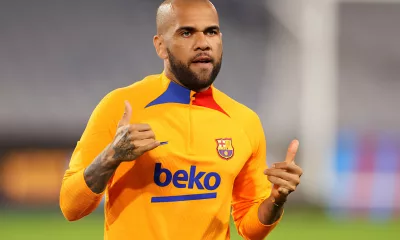
The Champions League was won by Manchester City last season as part of their historic triple, marking their first Champions League victory, and the team has been the benchmark in English football in recent years.
When Sheikh Mansour moved to Manchester’s blue area in 2008, the club’s fortunes were completely turned around by his investment, and that is how City’s present success began. Although Manchester City’s real owner, City Football Group, has bigger plans than to manage only one team; in 2013, a multi-club worldwide concept was planned.
Currently, 12 separate clubs from every continent—aside from Africa—as well as its numerous teams play men’s, women’s, and academy football.
There is no issue with being in the same stable as teams like Mumbai City, Melbourne City, and New York City in terms of UEFA regulations. However, as current laws theoretically forbid several clubs controlled by one organisation from participating in European championships at the same time, some problems must be addressed and fixed.
Palermo, Troyes, and Lommel are all second-tier teams in their respective nations, so it’s not a problem either way. Girona, who are unstoppably good in La Liga and on track to make it into the Champions League for the first time, might be the possible issue in Spain.
Why Man City could be barred from playing Champions League football
Although it does not control Girona entirely, the City Football Group is the club’s largest stakeholder, owning 47% of the Catalan team after an investment in 2017.
Girona was in the same league as the other European clubs in the City Football Group until recently. Before 2017, they had never participated in the top division of Spanish football.
Following their relegation in 2019, they spent three more years in the second division. Girona is in its second year back in La Liga, having almost missed the Segunda playoffs in 2022 to return. The 2023–2024 season marks their comeback.
However, Girona’s present path is comparable to that of Leicester’s, who in 2016 managed to upset the established order in the Premier League to win the English title. After recently defeating local rival Barcelona 4-2 away from home, Girona has impressively won 13 of their first 16 games and, as of this writing, leads Real Madrid by two points in La Liga.
They have a chance to maintain this and take home the trophy. Girona’s chances of finishing in the top four and earning a Champions League spot are quite high, even if they don’t. However, this is where issues with the previously mentioned restrictions can come up because Manchester City has a shared owner.
The club that places better in its respective domestic league will receive preference under UEFA regulations. Furthermore, despite City’s sustained dominance in the Premier League, their recent record of losing games indicates that they may not be able to surpass Girona in such a situation, therefore, Girona have the upper hand in this case.
What are UEFA’s rules regarding multi-club ownership?
In the unlikely event that the two teams in issue ever faced off, there would be serious concerns about impartiality since the rules are intended to prevent any one entity—whether it be a person or a group—from owning more than one team.
No club in any UEFA competition is permitted to: “Possess or deal in the securities or shares of any other club participating in a UEFA club competition, be a member of any other club participating in a UEFA club competition, be engaged in any capacity whatsoever in the management, administration, and/or sporting performance of any other club participating in a UEFA club competition, or have any power whatsoever in the management, administration, and/or sporting performance of any other club participating in a UEFA club competition.” This is detailed in Article 5 of UEFA’s Champions League regulations.
How likely are Man City to be banned from the Champions League?
Sit tight, City fans! It’s very unlikely. Multi-club ownership is becoming more frequently seen, and UEFA doesn’t want to be in a situation where clubs are prevented from participating in European competitions—especially if there is no direct connection or control over those teams’ operations aside from a common owner or shareholder.
Following reports that this was a concern for Manchester United, who are set to be partially owned by Sir Jim Ratcliffe’s INEOS, who are now owners at OGC Nice, it was reported that the company had spoken with UEFA and had been reassured that there were no significant problems.
UEFA is aware that this issue can recur if rules aren’t changed to prevent clubs from facing sanctions.
Author

Master Sports Journalism graduate from the University of Westminster in London. Worked as a reporter in Plovdiv, Bulgaria and has journalistic experience at Sky Sports in London and DIEMA Sports at NOVA Broadcasting Group in Sofia, Bulgaria. Authority and expert person in sports betting and betting sites reviews.
Master Sports Journalism graduate from the University of Westminster in London. Worked as a reporter in Plovdiv, Bulgaria and has journalistic experience at Sky Sports in London and DIEMA Sports at NOVA Broadcasting Group in Sofia, Bulgaria. Authority and expert person in sports betting and betting sites reviews.


Non-league Football
4 Unforgettable Moments in Irish Football















